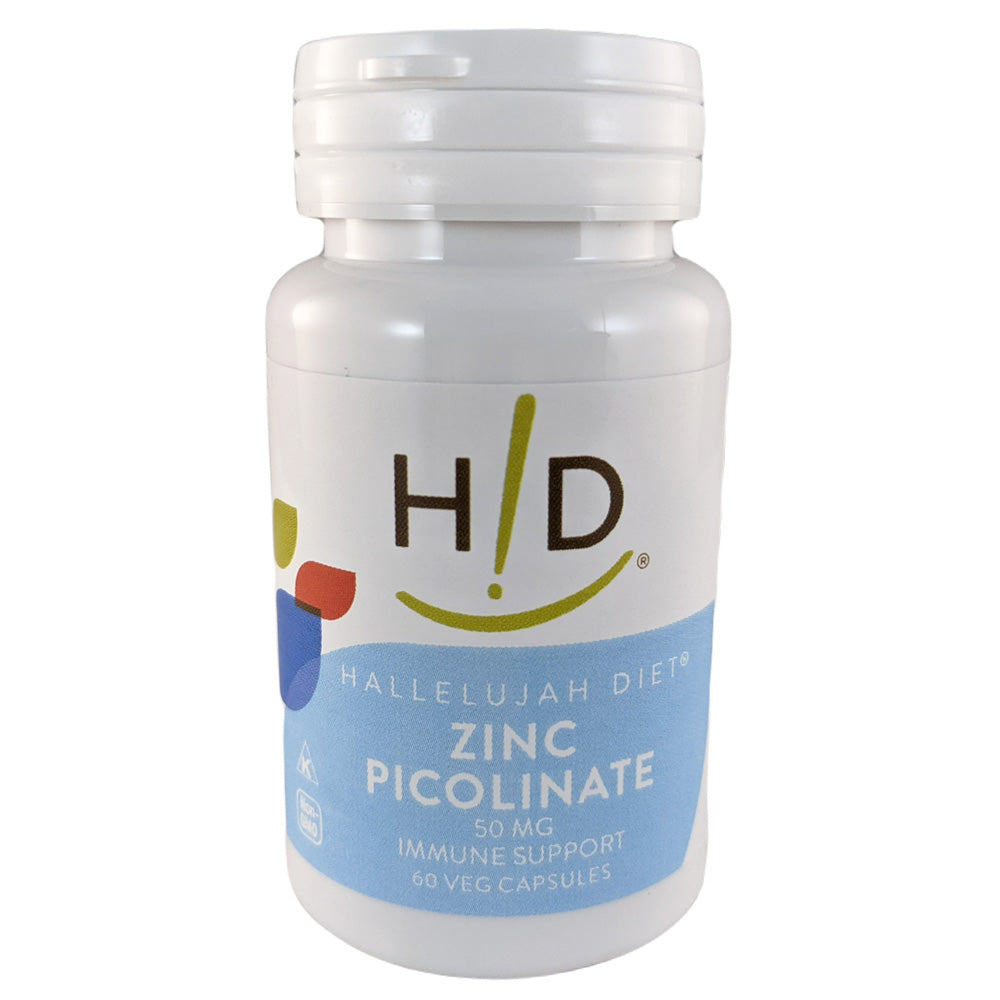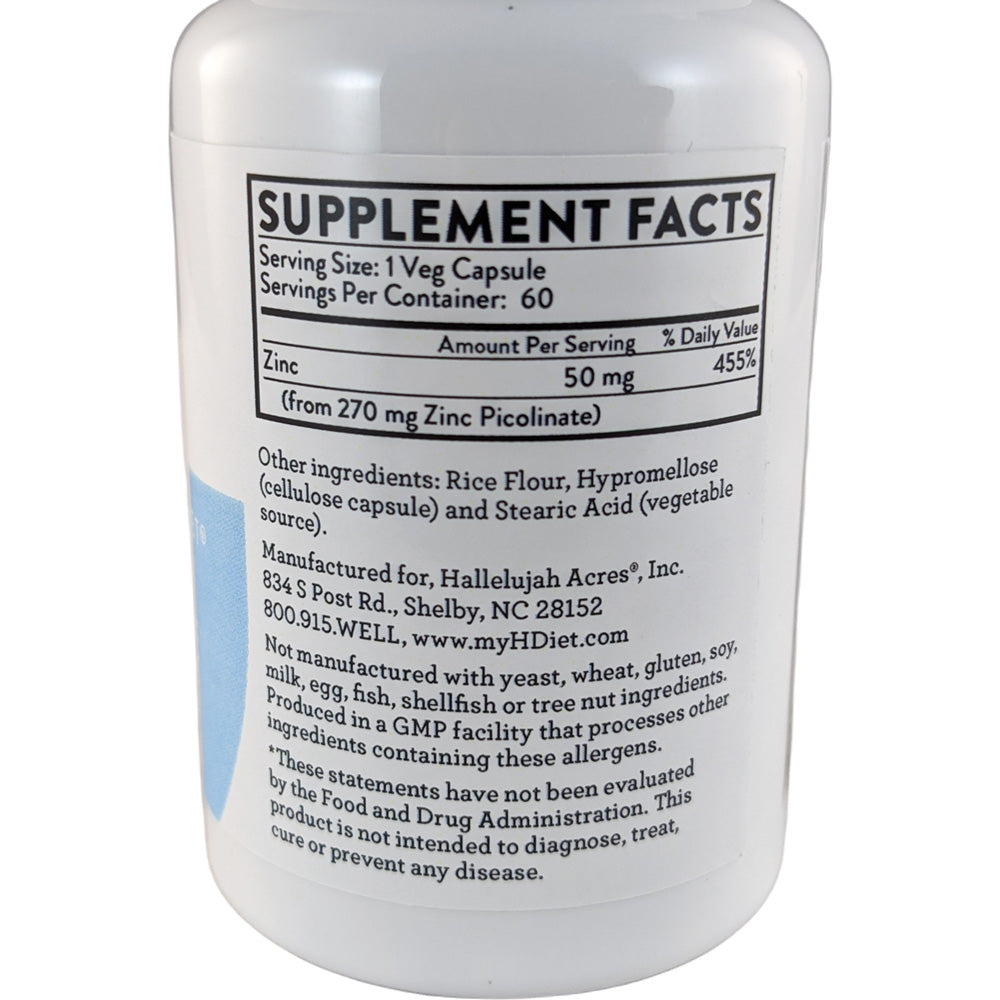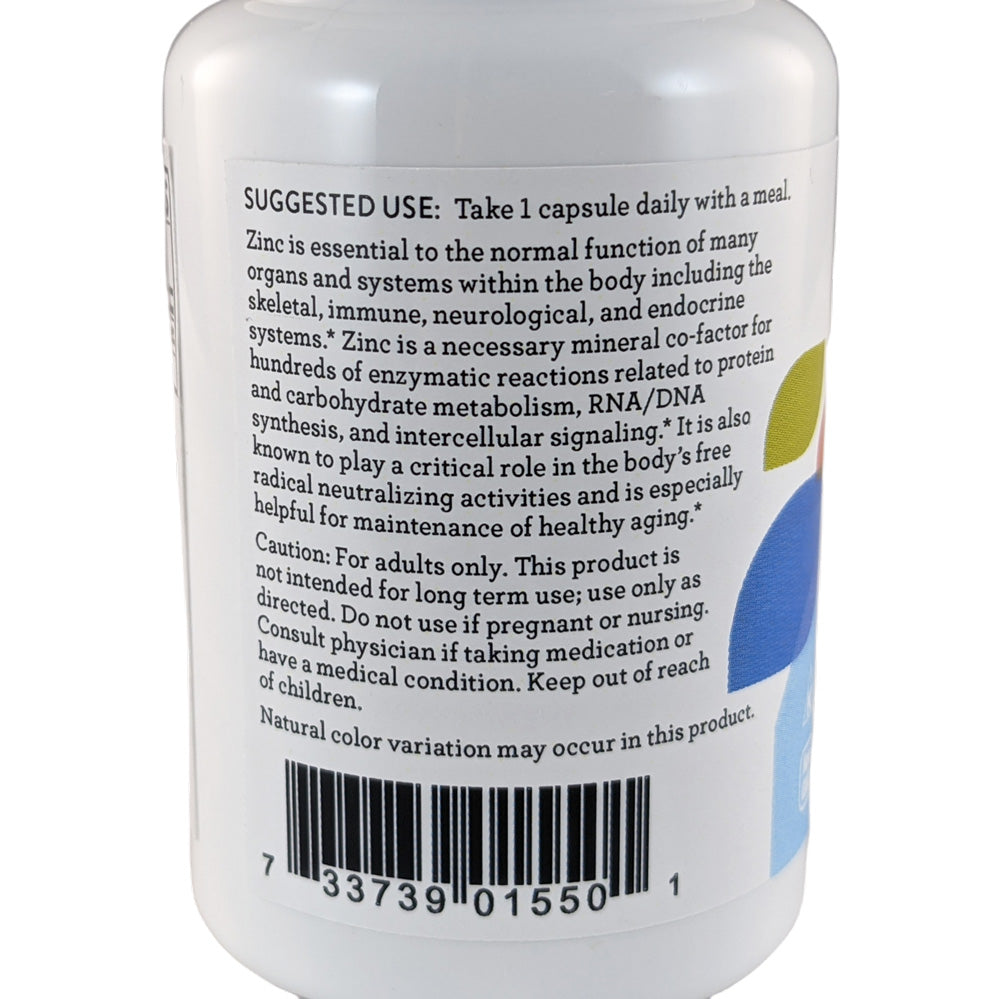


Zinc Picolinate
Zinc is an essential mineral that is a cofactor in many enzyme systems. As many as 3,000 proteins in the body have a binding site for zinc [1]. Some proteins use zinc for catalyzing reactions, some for stabilizing the structure of the protein, and some for regulating gene expression. As such, any shortage or deficiency affects many systems in the body. Zinc deficiency is more common as people get older.
Though zinc is commonly found in red meat, it is the non-red meat zinc that was associated with less progression of coronary artery calcification (CAC) in a recent study [2]. Coronary artery calcification is an independent risk factor for cardiovascular disease and death from all causes.
Zinc supplementation has been shown to increase the number of T cells (immune system cells that detect and kill infected or malignant cells) in elderly people [3, 4], which could lead to an improvement in resistance to infections. The body has natural anti-viral defenses which are bolstered by supplying enough zinc [5, 6], using supplements if necessary.
Zinc picolinate is a highly bio-available form of zinc to ensure maximum absorption.
The Hallelujah Diet and other whole food plant-based diets typically have higher amounts of copper in it than the typical American diet, so that supplementing with copper is not necessary and may be detrimental. Nuts and seeds are rich sources of dietary plant-based zinc.
References:
(2014) Zinc. In: Linus Pauling Inst. https://lpi.oregonstate.edu/mic/minerals/zinc
Gao J-W, Zhang S-L, Hao Q-Y, Huang F-F, Liu Z-Y, et al (2021) Association of dietary zinc intake with coronary artery calcium progression: the Multi-Ethnic Study of Atherosclerosis (MESA). Eur J Nutr 60:2759–2767.
Barnett JB, Dao MC, Hamer DH, Kandel R, Brandeis G, et al (2016) Effect of zinc supplementation on serum zinc concentration and T cell proliferation in nursing home elderly: a randomized, double-blind, placebo-controlled trial. Am J Clin Nutr 103:942–951.
Fortes C, Forastiere F, Agabiti N, Fano V, Pacifici R, et al (1998) The effect of zinc and vitamin A supplementation on immune response in an older population. J Am Geriatr Soc 46:19–26.
Sadeghsoltani F, Mohammadzadeh I, Safari M-M, Hassanpour P, Izadpanah M, et al (2021) Zinc and Respiratory Viral Infections: Important Trace Element in Anti-viral Response and Immune Regulation. Biol Trace Elem Res. https://doi.org/10.1007/s12011-021-02859-z
Prasad AS, Beck FW, Bao B, Fitzgerald JT, Snell DC, et al (2007) Zinc supplementation decreases incidence of infections in the elderly: effect of zinc on generation of cytokines and oxidative stress. Am J Clin Nutr 85:837–844. https://doi.org/10.1093/ajcn/85.3.837




